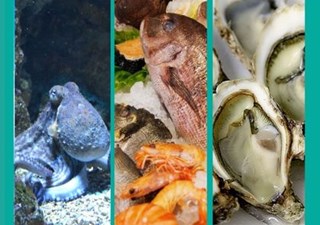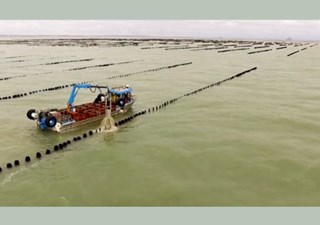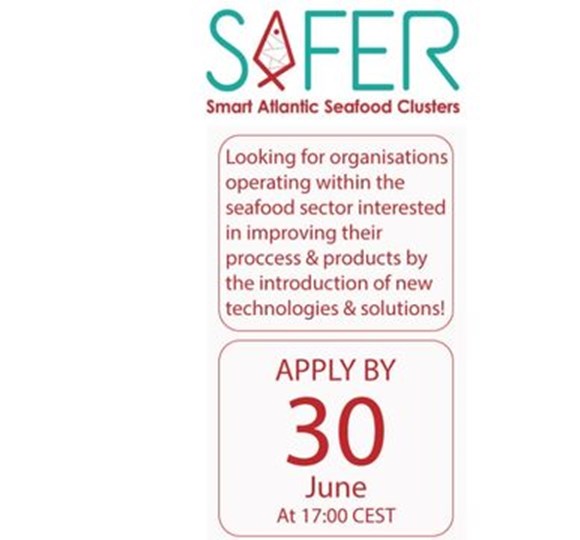Thursday, 16 June 2022
The Interreg Atlantic Area, project SAFER, has launched an open call for new, fully funded technology pilots aimed at organisations operating in the seafood sector across the Interreg Atlantic Area, including Donegal.
SAFER is a transnational innovation project co-funded by the Interreg Atlantic Area Programme 2014-2020, that aims to improve the innovation performance of the seafood industry by increasing technology adoption and transnational cooperation. The project, led by ERNACT, brings together academia, public authorities, and marine organisations across 5 countries, to implement and improve manual processes utilising innovative technological solutions.
The first phase of project SAFER saw four successful pilot initiatives implemented in the Northwest of Ireland, with researchers at the ATU Donegal WiSAR Lab and Údarás na Gaeltachta collaborating with the Loughs Agency, Irish Fish Canners, and seafood giant MOWI.

Academic Director of the WiSAR Lab at ATU Donegal, Dr Nick Timmons, highlighted the strong impact of the previous SAFER pilots.
“Since the project commenced in 2017, WiSAR has worked with various organisations operating in the blue economy including two separate pilot initiatives with the Loughs Agency, a cross-border organisation, that aims to provide sustainable economic and environmental benefits through the development of marine resources in the Foyle and Carlingford Areas. These pilot initiatives included the development of a remote, oyster farm monitoring solution and an oyster bag tagging app, for sustainable oyster fishing.”
“For the oyster farm monitoring pilot, the goal was to increase the population of native oysters in Lough Foyle. Working with our SAFER partners, WiSAR applied a remote monitoring solution enabling Loughs Agency staff to optimise tank conditions to protect a large number of oysters until they reach maturity, ensuring future growth and survival. The monitoring system enables the Loughs Agency to keep track of the conditions in the oyster tanks remotely, allowing officials to respond quickly to any environmental changes that could have a negative impact on the health of the marine animals.”
“For the oyster bag tagging app pilot, WiSAR helped the Loughs Agency to track and record the quantity of oysters that can be sustainably fished. A tagging system currently in place, allows a fisherman to catch a 25kg bag of oysters, per tag. Loughs Agency officials perform periodic inspections of these tags, but reporting was carried out manually, making it both time consuming and error prone. WiSAR researchers developed a barcode and phone app which enables inspectors to scan tags, generating digital records, that can quickly identify any abuses. This system is more time efficient and minimises human error, helping to inform future sustainable fishing practice around the lough.”
“A third pilot initiative in collaboration with Mowi, the world’s leading supplier of organic farmed salmon, involved the development of an app for the digital reporting of quality control procedures, such as portion weights and fish quality. The company had utilised manual reporting methods which were labour intensive, prone to error, and required large amounts of paper-based filing. WiSAR researchers sourced a rugged tablet, for use in the high humidity of a fish processing factory and an app was developed to replicate the old manual reporting system, allowing for automatic transcription. This system enables Mowi to generate more accurate reports instantly, saving many hours of labour.”
“A fourth pilot was implemented at Irish Fish Canners, the largest and only fish canning facility in Ireland, located in Meenmore, Donegal. The company had previously utilised manual spreadsheets for stocktaking, goods in, goods out and preparation of value-added. This was an arduous task, and the manual nature of the task could lead to errors in recording data.”
“Through SAFER, a Flow Manufacturing System (Manufacturing Execution System) was implemented at the Irish Fish Canners plant, an integrated system of software and hardware, designed for the control of production, quality, food safety, traceability, stock, picking and distribution.

”SAFER project leader, Jose Manuel, of ERNACT, said that “We are delighted to launch this new open call for pilot initiatives under SAFER, building on the previously successful implementation of several pilots and we would encourage all organisations operating in the seafood industry across Donegal and the Northwest to get in touch with us to explore the potential to improve a process, service or product and drive greater efficiencies. Emerging technologies, such as IoT, can generate far reaching opportunities for the seafood industry, making processing systems and supply chains much more interconnected."
" It has been a very challenging time for the sector in navigating the challenges posed by Brexit and Covid-19, and this new SAFER call is a great opportunity for organisations to revaluate processes and enhance competitiveness.”
Dr Nick Timmons appealed to local seafood organisations to take advantage of the new SAFER pilot call in response to the ongoing uncertainty within the sector. The adoption of new technologies can increase the efficiency and moreover, the sustainability, of the marine economy, which is crucial to many local economies, including Donegal. This new pilot call presents a timely and unique opportunity for local seafood organisations to mitigate the ever-increasing challenges posed by the global marketplace without the need for in-house expertise or capital commitments.
"I would urge all seafood organisations in the Northwest to consider applying for this new SAFER pilot call before the closing date on June 30th.”
For more information contact info@saferatlantic.eu
To apply for the new SAFER pilot call, click
HERE